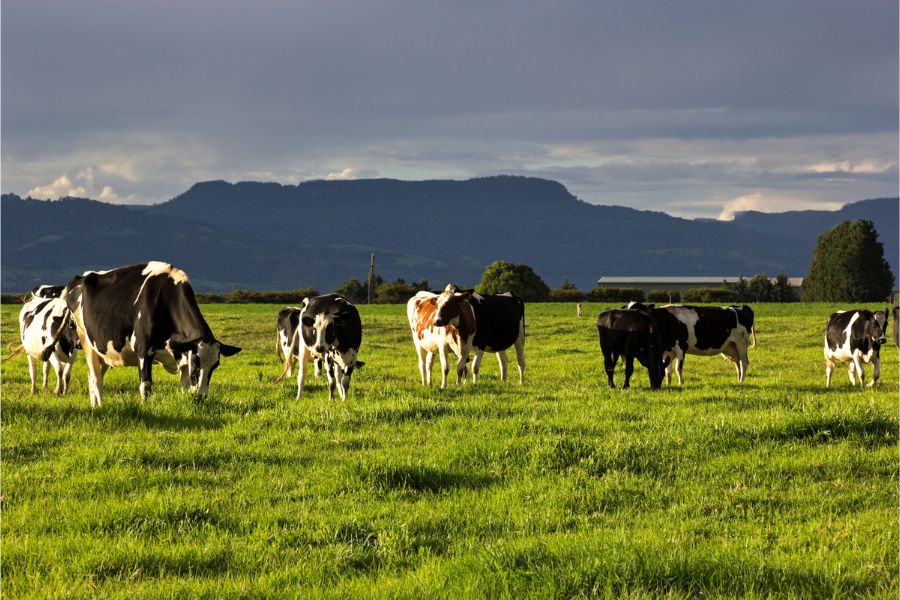Recent advancements in AI are ushering in a new era for agriculture with innovative applications poised to transform the industry. These AI-driven approaches are not just enhancing current practices but are also paving the way for more resilient and sustainable farming methods for the future.
AI is not just a tool but a transformative force in farming. It holds the key to a more efficient, productive, and sustainable agricultural sector, ready to meet the challenges of the future. As we stand at the cusp of this AI-driven era, embracing AI in farming is not just an option but a necessity for the survival and prosperity of the global population.
The agricultural sector stands on the brink of a technological revolution, with artificial intelligence (AI) poised to redefine the very essence of farming. As the global population surges towards an estimated 9.7 billion by 2050, the demand for food will inevitably rise. AI emerges as a beacon of hope, promising to enhance food security by optimizing resource use and boosting productivity.
Artificial intelligence (AI) is rapidly becoming a cornerstone of modern agriculture, offering innovative solutions that promise to reshape the industry. As the global population continues to grow, the demand for food security becomes more pressing. AI stands at the forefront of this challenge, providing tools and technologies that optimize resource use, enhance crop yields, and ensure a stable food supply for an ever-increasing number of people.
The Fundamentals of AI in Agriculture
Securing the Global Food Supply with AI
The role of AI in agriculture is crucial in addressing the world’s food security needs. By harnessing the power of predictive analytics and intelligent automation, AI is instrumental in optimizing agricultural outputs. These technologies enable farmers to predict weather patterns, monitor soil conditions, and manage irrigation systems with precision, leading to increased crop yields and a more reliable food supply.
Elevating Crop Health with Precision Farming
Precision farming is one of the most transformative applications of AI in agriculture. This approach uses AI to monitor crops continuously, providing farmers with detailed insights into the health and needs of their plants. With this information, they can make informed decisions about irrigation, fertilization, and pest control, resulting in healthier crops and higher-quality harvests.
Combating Labor Shortages with AI-Driven Automation
Labor shortages have long been a challenge in the agricultural sector. AI is addressing this issue by introducing autonomous machines and drones that can perform routine tasks like planting, harvesting, and crop monitoring. This automation not only alleviates the labour shortage but also allows human workers to focus on more complex and strategic aspects of farm management.
Boosting Economic Viability with Strategic AI Implementation
The economic benefits of AI in agriculture are significant. By employing AI for strategic planning, farmers can optimize pricing and reduce costs associated with labour and inputs. This leads to improved profit margins and economic sustainability for farms of all sizes.
Promoting Sustainable Practices with AI
Sustainability is a critical concern in modern farming, and AI is playing a key role in promoting eco-friendly practices. AI systems can monitor environmental conditions and manage farming practices to minimize their impact on the land. This includes optimizing the use of water and fertilizers, reducing waste, and preventing over-farming.
AI as the Future of Farming
The integration of AI into agriculture is not just about improving current practices; it’s about building a sustainable and resilient future for farming. AI has the potential to become the ultimate steward of the land, constantly monitoring and adjusting every aspect of the farming process. It can respond to changes in climate and environmental conditions in real time, ensuring that crops remain healthy and productive.
Embracing AI in agriculture is essential for the future of farming. It offers a path to increased efficiency, productivity, and sustainability, aligning the needs of humanity with the health of our planet. As we move forward, AI will continue to play a vital role in feeding the world’s population while preserving the environment for generations to come.

























